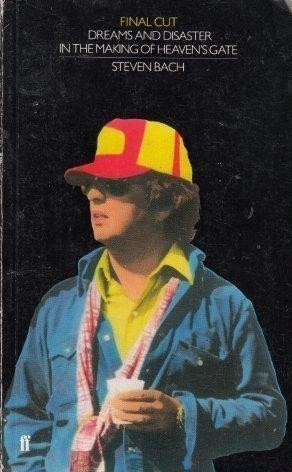Steven Bach’s Final Cut: Dreams and Disaster in the Making of Heaven’s Gate (1985) explores in detail the behind-the-scenes story of the production of Michael Cimino’s epic western Heaven’s Gate, a film mostly remembered for effectively destroying the illustrious studio founded in 1919 by Charlie Chaplin, Douglas Fairbanks Snr, Mary Pickford and D W Griffith. Bach, a senior vice president at United Artists, was intimately involved in its production, and his unsparing, and certainly not self-serving, account is written with an insider’s perspective. He covers in detail the personalities, both on set and in the back office, and the process, which took on an unstoppable life of its own, of bringing Heaven’s Gate to the screen.
Cimino was considered highly bankable after his 1978 success with The Deer Hunter. UA was naive, desperate to make a mark as a significant player and putting too much trust in the director, a trust which ultimately worked to its disadvantage. Production was plagued by problems from the very beginning, not least Cimino’s perfectionism, budgetary extravagance and insistence on filming everything on location. This led to extensive delays and cost overruns, as well as clashes with cast and crew. There were problems with the script, which Cimino constantly rewrote while filming was taking place.
As the production dragged on, eventually lasting two years, tensions between Cimino and the studio executives grew. Bach recounts the numerous arguments and negotiations, and eventually recutting to try to make the picture more commercial, in the face of increasing financial pressure to finish the film. The cost of Heaven’s Gate eventually came in at some $44 million on an original budget of $11.6 million, one of the most expensive films ever.
In the end, when it was released in 1980 it was a commercial and critical disaster. With a running time of three and a half hours and a considerable amount of bad press, it was not a film cinemagoers were anxious to see, grossing only $3.5 million at the box office. Despite the amount of money thrown at it, Bach suggests that a great deal of the antipathy was generated by a lack of discipline in the storytelling as well as the production, plus its nihilism and failure to ‘engage audiences on the most basic and elemental human levels of sympathy and compassion…’
It became notorious for being one of the biggest box office bombs in history, raising concerns about Hollywood excess and effectively ending the era of the director-driven Hollywood project as studios took back control. Yet from being dismissed as one of the worst films ever made, the reputation of Heaven’s Gate quickly grew as it was positively reappraised and attracted an increasing number of defenders. Personally, I have to say I liked it, despite the prioritisation of surface gloss over story. The debacle did not kill Cimino’s career but unsurprisingly damaged it badly, and he never again achieved the creative heights of The Deer Hunter.
In addition to the examination of a studio destroyed by hubris, and Heaven’s Gate’s many sobering lessons, Bach looks at the inner workings of the film industry, raising questions about the role of creative vision, and auteur arrogance, versus commercial practicalities: the film was made during a time of economic recession in the United States and the studio was already facing financial difficulties, factors which Cimino ignored. While Bach was fired for his involvement, at least in Final Cut he was able to write a classic of the genre as compensation.

